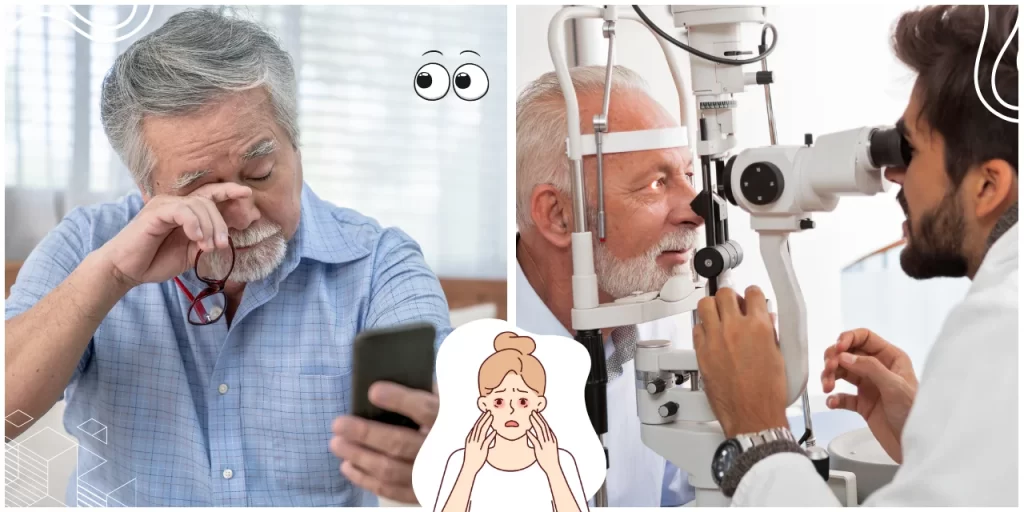Why Early Diagnosis of Cataracts is Crucial for Vision Health Cataracts are one of the leading causes of vision loss worldwide, affecting millions of people, especially as they age. However, many individuals ignore the early signs of cataracts, assuming that vision problems are just a natural part of aging. Early diagnosis is crucial because cataracts worsen over time and can eventually lead to complete vision loss if left untreated. Recognizing the symptoms and seeking prompt cataract treatment in Patiala can help preserve clear vision and improve quality of life. Understanding Cataracts A cataract is a condition where the eye’s natural lens becomes cloudy, leading to blurred vision. This cloudiness occurs due to protein buildup in the lens, preventing light from passing through clearly. Cataracts typically develop slowly and may not cause noticeable symptoms at first. However, as the condition progresses, it can lead to significant vision impairment. Early Symptoms of Cataracts Many people do not realize they have cataracts in the early stages. Some common symptoms include: Blurred or cloudy vision Difficulty seeing at night Sensitivity to light and glare Fading or yellowing of colors Double vision in one eye Frequent changes in glasses or contact lens prescriptions If you or a loved one experiences any of these symptoms, it is essential to consult an eye specialist for a comprehensive eye exam. Why Early Diagnosis is Essential 1. Prevents Severe Vision Loss Cataracts worsen over time, leading to complete blindness if left untreated. Early diagnosis enables doctors to monitor the condition and recommend timely treatment options to maintain clear vision. 2. Improves Quality of Life Blurry or cloudy vision affects daily activities such as reading, driving, and recognizing faces. Early cataract treatment can restore sharp vision, allowing individuals to continue their daily routines without difficulty. 3. Reduces Risk of Falls and Injuries Poor vision increases the risk of falls and accidents, especially in elderly individuals. By diagnosing and treating cataracts early, the chances of injuries due to impaired vision can be significantly reduced. 4. Enhances Treatment Effectiveness Cataract surgery is a safe and highly effective procedure. However, if cataracts are left untreated for too long, they become denser and harder to remove. Early detection ensures a smoother and more successful surgery with quicker recovery. Treatment Options for Cataracts The most effective treatment for cataracts is surgery, where the cloudy lens is replaced with a clear artificial lens. Modern advancements in cataract surgery have made the procedure quick, painless, and highly successful. Some treatment options include: Phacoemulsification: A minimally invasive surgery where the cataract is broken down and removed using ultrasound waves. Laser-Assisted Cataract Surgery: A precise and advanced technique using laser technology for better accuracy. Intraocular Lens (IOL) Implants: Artificial lenses implanted to restore clear vision after cataract removal. How to Prevent Cataracts While cataracts are a natural part of aging, certain lifestyle changes can help delay their onset or slow their progression: Wear sunglasses to protect your eyes from UV rays. Maintain a healthy diet rich in vitamins C and E. Avoid smoking and excessive alcohol consumption. Control diabetes and manage other health conditions that can affect eye health. Get regular eye check-ups to detect cataracts and other eye problems early. Conclusion Cataracts are a common but treatable eye condition. Early diagnosis is key to preserving vision and ensuring a better quality of life. If you notice any signs of cataracts, do not delay seeking medical help. The best eye hospital in Patiala, Dr. Preet Inder Singh Eye Hospital, offers expert cataract diagnosis and treatment to restore your clear vision. Contact us today at 0175-2227169 or 9041109006 to schedule your consultation and take the first step toward better eye health.
Blog
Your blog category
Winter Dry Eyes: Why You Shouldn’t Ignore the Discomfort This Season As winter sets in, many people experience dry and irritated eyes. This seemingly minor discomfort can often be overlooked, but it’s important to understand that dry eyes are not just a seasonal annoyance. If left untreated, they can lead to more serious eye health issues. Let’s explore why winter dry eyes occur and why timely treatment is crucial. What Causes Dry Eyes in Winter? Winter brings with it cold winds, low humidity, and the constant use of indoor heating, all of which can strip moisture from your eyes. These factors disrupt the balance of tears in your eyes, leaving them dry, itchy, and irritated. Another major contributor is prolonged screen time. During winter, people tend to stay indoors, leading to increased use of gadgets. This reduces your blink rate, further exacerbating dryness. For some, winter dry eyes are more than just a seasonal problem. People who wear contact lenses or have underlying conditions like diabetes are more prone to this issue. Symptoms of Winter Dry Eyes You Shouldn’t Ignore Dry eyes may seem like a minor problem, but the symptoms can escalate quickly. Look out for: Persistent itching and irritation A gritty or sandy feeling in the eyes Sensitivity to light Blurred vision Redness or swelling Ignoring these symptoms can lead to complications such as inflammation, corneal damage, or even vision loss. Why You Should Prioritize Eye Treatment in Patiala This Winter Timely intervention can prevent winter dry eyes from becoming a chronic issue. Specialized care ensures that the root cause of your discomfort is addressed effectively. Eye treatment in Patiala is equipped with modern solutions, such as artificial tears, specialized ointments, or advanced therapies tailored to your needs. Simple Tips to Relieve Winter Dry Eyes Here are a few steps you can take to alleviate the discomfort: Use a humidifier at home to maintain indoor moisture levels. Take regular breaks while using digital devices to reduce eye strain. Stay hydrated by drinking plenty of water. Protect your eyes from cold winds by wearing wrap-around sunglasses when outdoors. Consult an eye specialist if symptoms persist. Conclusion Don’t let the discomfort of winter dry eyes interfere with your daily life. Ignoring these symptoms can lead to serious eye conditions, so taking action now is crucial. At Dr. Preet Inder Singh Eye Hospital, our team of experts is dedicated to providing the best care for your eyes. If you’re seeking trusted care at an eye hospital in Patiala, visit us to explore advanced treatments tailored to your needs. Your vision deserves the best care, even in the harshest winters. Keep your eyes healthy this season! Call us today at 01752 227169 or 90411 09006.
How Does Glaucoma Affect Vision and What Can Be Done to Prevent It
How Does Glaucoma Affect Vision and What Can Be Done to Prevent It Glaucoma is one of the leading causes of irreversible blindness worldwide. It is a group of eye diseases that damage the optic nerve, which is responsible for transmitting visual information from the eye to the brain. Without early detection and proper treatment, glaucoma can lead to permanent vision loss. In this article, we will explore how glaucoma affects vision and what steps can be taken to prevent it. Understanding Glaucoma? Glaucoma refers to a group of diseases that damage the optic nerve, which transmits visual information from the eye to the brain. The most common form, primary open-angle glaucoma, often presents no early symptoms, leading many individuals to be unaware they have it until significant vision loss occurs. This condition typically affects peripheral vision first, gradually progressing to central vision loss if untreated How Does Glaucoma Affect Vision? At first, glaucoma may not show any symptoms. In fact, many individuals with the condition do not experience noticeable vision loss until it has reached an advanced stage. The damage begins at the peripheral (side) vision and gradually narrows the field of view. This is why glaucoma is often referred to as the “silent thief of sight.” As the condition progresses, it can lead to complete blindness if not treated. Key effects of glaucoma on vision include: Loss of peripheral vision: This typically starts as a gradual reduction in side vision and may go unnoticed until significant damage occurs. Blurred vision: This can happen when pressure on the eye affects the optic nerve. Difficulty adjusting to low light: Glaucoma can impact the eye’s ability to adapt to dim lighting conditions. Tunnel vision: In the later stages, glaucoma can lead to a narrowing of the field of vision, similar to looking through a tunnel. Preventive Measures While there is currently no definitive way to prevent glaucoma entirely, several strategies can significantly reduce the risk and help preserve vision: Regular Eye Examinations Routine eye exams are essential for detecting glaucoma, especially for individuals over 40 or those with a family history of the condition. A comprehensive eye exam includes checking eye pressure, examining the optic nerve, and assessing the drainage angle. Medication and Eye Drops For those diagnosed with glaucoma, medication in the form of eye drops or oral medication is often prescribed to reduce intraocular pressure. These medications either decrease the production of fluid or improve its drainage. Surgical Treatments In cases where medications are not effective, surgical procedures such as laser therapy or glaucoma surgery may be necessary to improve fluid drainage or reduce pressure inside the eye. Lifestyle Changes While lifestyle changes may not cure glaucoma, maintaining a healthy lifestyle can improve overall eye health. This includes eating a balanced diet rich in antioxidants, staying active, and avoiding smoking. Additionally, protecting the eyes from excessive sunlight by wearing sunglasses can help maintain long-term eye health. Follow-up Appointments Regular follow-ups with your glaucoma doctor are important to monitor the condition’s progression and adjust treatment as necessary. This ensures the best possible outcomes and prevents further vision loss. Conclusion Glaucoma can cause permanent vision loss if untreated. Regular eye exams, medication, and lifestyle changes help manage it. If you’re at risk, consult a Glaucoma Doctor in Patiala for early detection and care to protect your vision. For expert care, consult Dr. Kavnit Kaur at Dr. PreetInder Singh Eye Hospital in Patiala. Call +911752227169 to book an appointment today and protect your vision.
Eye Strain and Double Vision: Causes, Symptoms, and Treatment Options Eye strain and double vision are common vision-related issues that can significantly impact a person’s quality of life. Both conditions can be caused by various factors, ranging from lifestyle choices to underlying medical conditions. Understanding the causes, symptoms, and treatment options for eye strain and double vision is crucial in managing these problems and preventing further discomfort. Causes of Eye Strain and Double Vision Eye strainalso known as asthenopia, occurs when the eyes are overworked, typically due to prolonged periods of close-up tasks such as reading, using a computer, or staring at a smartphone screen. It can be exacerbated by improper lighting, uncorrected vision problems, or poor posture. People who spend long hours in front of screens often report headaches, dry eyes, and blurred vision as symptoms of eye strain. Double visionor diplopia, happens when a person sees two images of a single object. This condition can be caused by several factors, including eye muscle imbalances, neurological issues, or problems with the lens or cornea. Eye conditions such as cataracts, refractive errors, or conditions like myasthenia gravis can lead to double vision. In some cases, double vision may result from a misalignment of the eyes, which can be corrected with glasses or other treatments. Symptoms of Eye Strain and Double Vision Eye Strain: Blurry vision, especially after long periods of reading or screen time Headaches or migraines Dry or watery eyes Difficulty focusing Neck or shoulder pain due to poor posture Sensitivity to light Double Vision: Seeing two images of a single object Difficulty focusing or tracking moving objects Eye pain or discomfort Eye misalignment or squinting Nausea or dizziness due to blurred vision Treatment Options for Eye Strain and Double Vision Eye Strain: Proper Lighting: Ensure that the lighting in your work area is neither too dim nor too bright. Avoid glare on screens, and use soft, indirect lighting.Breaks and Rest: Follow the 20-20-20 rule: every 20 minutes, take a 20-second break and look at something 20 feet away. This gives your eyes time to relax.Corrective Lenses: If uncorrected vision problems contribute to eye strain, wearing prescription glasses or contact lenses can help.Screen Adjustments: Adjust the brightness and contrast of your screen. Use anti-glare filters to reduce strain on your eyes.Blinking Exercises: Frequent blinking helps prevent dry eyes, a common side effect of extended screen time. Double Vision: Eyeglasses: In cases of misalignment, specialized glasses or prisms can help align the images properly.Vision Therapy: For eye muscle imbalances, vision therapy exercises can help improve coordination and reduce double vision.Surgical Correction: In some cases, surgery may be needed to address eye muscle problems or correct refractive errors.Medical Treatment: Treating underlying conditions like cataracts or neurological disorders may alleviate double vision. Conclusion Both eye strain and double vision can be disruptive to daily life, but with proper care and treatment, they can be managed effectively. If you’re experiencing any of these symptoms, it’s crucial to consult with an Eye Specialist in Patiala to ensure your eyes are healthy and receive the right treatment. For personalized care, you can reach out to Dr. Kavnit Kaur at Dr. Preet Inder Singh Eye Hospital in Patiala. The hospital offers comprehensive eye care services, including treatments for eye strain, double vision, and other vision-related conditions. For appointments or inquiries, contact +911752227169.





